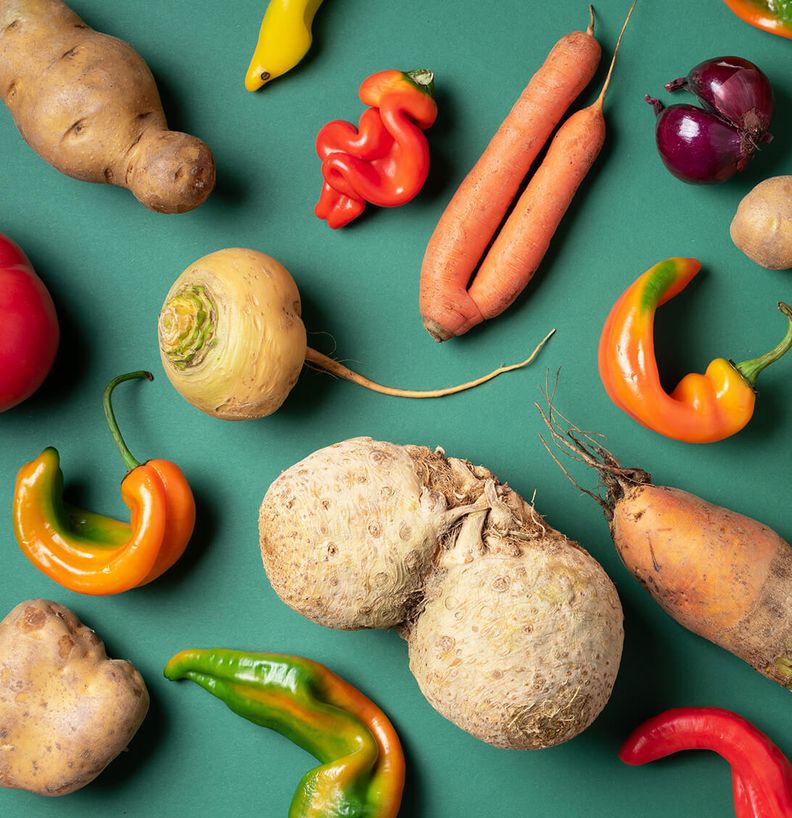Find out if potatoes belong in your fridge or cupboard, and lots of storage tips for foods like bread, apples and more.
WHERE SHOULD YOU STORE POTATOES? (AND OTHER TIPS)
Find out if potatoes belong in your fridge or cupboard, and lots of storage tips for foods like bread, apples and more.
WHERE SHOULD YOU STORE POTATOES? (AND OTHER TIPS)


According to research we recently commissioned, 17% of people store their potatoes in the fridge. If you make up part of this 17%, we regret to tell you that you’re storing your potatoes incorrectly. Read on to find out where you should store potatoes, and other foods that are commonly stored in the wrong place.
WHERE YOU SHOULD STORE POTATOES AND OTHER FOODS
Potatoes should be stored in the cupboard
The stats: 17% of people those surveyed keep their potatoes in the fridge.
Potatoes should be stored in a cool, dark place (often in a paper bag works well) to preserve freshness and prevent them turning green. Onions and potatoes often go hand in hand in recipes, but they’re also often mistakenly stored together. Onions can make root vegetables go bad quickly, so make sure to keep them separate.

Eggs should be stored in the fridge
The stats: 36% of those surveyed keep their eggs in the cupboard.
Eggs should be stored in a cool, dry place – ideally in the fridge. Keeping the eggs in the cold will make them last longer, but make sure you keep them near the back of your fridge as constant changes in temperature can make them go off more quickly.

Chocolate should be stored in the cupboard
The stats: 29% of those surveyed store chocolate in the fridge.
The fridge tends to increase humidity which is not good for chocolate. So, the best place to keep your chocolate is in any cool, dark place – making a kitchen cupboard the ideal spot.

Ketchup should be stored in the fridge
The stats: 52% of those surveyed store ketchup in the cupboard.
Once opened, tomato ketchup should be kept in the fridge to maintain its freshness and make sure it tastes as great as possible! Don’t worry if you are on the go though, the acidity of the condiment preserves it whilst it’s out of the fridge.

Veggies should be stored in the fridge
The stats: 10% of those surveyed store their cucumbers in the cupboard.
Certain vegetables like cucumber, celery or carrots can go soft and lose their crunch if left for a while. To avoid this, simply chop into sticks and place in a jar of cold water in your fridge (make sure it’s airtight!). Just remember to change the water every day or so to maintain the freshness. Top tip: this hack also works to revive vegetables that have already softened!

Bananas can be stored in the fridge or the fruit bowl - but separate from each other
The stats: 43% of those surveyed knew that storing bananas next to other fruit meant the fruit would go off quicker.
It may be convenient, but by storing your bananas all together in one bunch, each banana will ripen at the same time, meaning you've either got to eat all your bananas at once or risk throwing away the rotten ones. Here's a solution: Break up the bunch. Keep some in the fruit bowl on the counter to ripen and store other bananas in the fridge to delay the ripening process. Bananas can also cause other fruit to ripen faster, so it is worthwhile to separate them from the rest of your fruit!

Sliced bread should be stored in the fridge
The stats: 58% of those surveyed store bread in the cupboard.
If you save sliced bread, remember to store it in the fridge when you get home. This way it will last much longer, extending its expiration date. Always remember to use your senses before consuming it – look, smell, taste!

Olive oil should be stored in the cupboard
The stats: 7% of those surveyed store olive oil in the fridge.
Make sure olive oil is stored in a dark, dry, and cool cupboard out of direct sunlight and heat. Storing the oil in the fridge could mean that it takes on the flavours of surrounding foods – the last thing you want is a cheesy oil!

Fresh bread should be stored in the cupboard
The stats: 58% of those surveyed store bread in the cupboard.
Cloth bags are the best option for storing bread. In this way it will maintain its properties better. As bread loses its moisture, it becomes drier but, if you add a piece of unpeeled potato inside the bag, it will help your bread last longer.

Storing your food correctly will prevent it from going off earlier than it needs to, helping you to reduce food waste. We’d argue it’s one of the easiest ways to lessen your impact on the planet while saving you money on shopping at the same time.
You know the theory, so why not test your new knowledge by rescuing a Surprise Bag and storing your goodies optimally?
start saving food today
start saving food today
Our app is the world's largest marketplace for surplus food. We help users rescue good food from going to waste, offering great value for money at local stores, cafes and restaurants.
JOIN 180,000 BUSINESSES FIGHTING FOOD WASTE WITH US
JOIN 180,000 BUSINESSES FIGHTING FOOD WASTE WITH US



